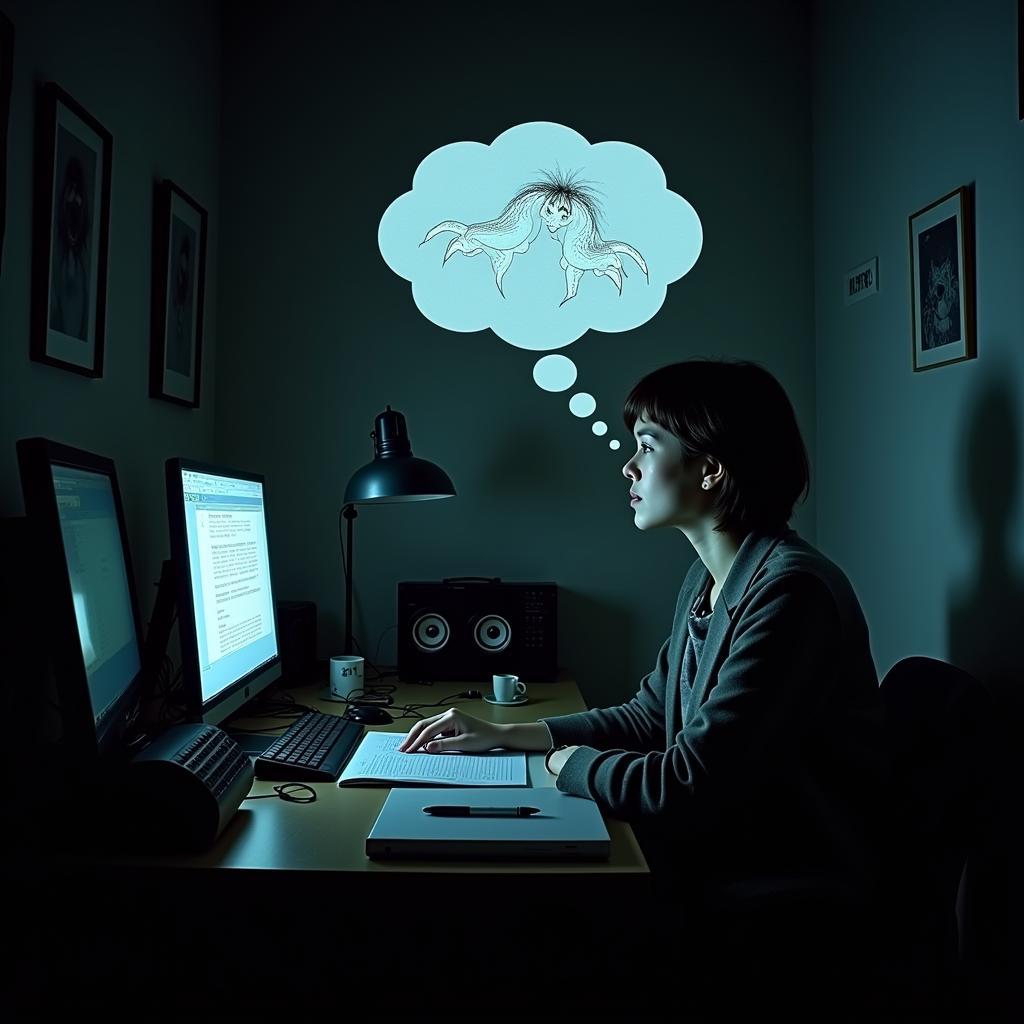Reflexivity in qualitative research is crucial for ensuring credible and insightful findings. It’s the process of critically examining how your own biases, assumptions, and experiences shape the research process, from data collection and analysis to interpretation and reporting. In the realm of paranormal research, where subjectivity and interpretation play significant roles, reflexivity becomes even more vital. Understanding reflexivity allows researchers to acknowledge and account for their influence, leading to more robust and trustworthy results. Let’s delve deeper into how reflexivity impacts and enhances qualitative paranormal investigations.
One of the primary benefits of employing reflexivity is that it strengthens the trustworthiness qualitative research. By acknowledging potential biases, researchers can actively work to mitigate their impact on the study. For instance, a researcher investigating a haunted location might have pre-conceived notions about the existence of ghosts, which could influence how they interpret ambiguous evidence. Through reflexivity, the researcher can acknowledge this bias and strive for a more objective analysis of the data, considering alternative explanations and perspectives.
Embracing Reflexivity in Paranormal Investigations
Reflexivity is not just a theoretical concept; it’s a practical tool that can be incorporated throughout the research process. It starts with researchers honestly assessing their own beliefs, values, and experiences related to the research topic. What are their preconceived notions about the phenomenon being studied? How might their personal background influence their interpretation of data? These are crucial questions that researchers must ask themselves before embarking on a study.
How Does Reflexivity Enhance Data Analysis?
Reflexivity is particularly crucial during the steps of data analysis in qualitative research. When analyzing interview transcripts, observational notes, or other qualitative data, researchers should continuously reflect on how their own perspectives might be shaping their understanding of the data. This might involve keeping a reflexive journal where they document their thoughts and feelings throughout the research process.
 Reflexivity in Qualitative Paranormal Research
Reflexivity in Qualitative Paranormal Research
Furthermore, incorporating reflexivity can lead to more nuanced and insightful interpretations of the data. By critically examining their own assumptions, researchers can open themselves up to alternative perspectives and interpretations that they might have otherwise overlooked.
Reflexivity and Research Rigor
Some researchers might argue that embracing reflexivity introduces subjectivity into research, thereby diminishing its rigor. However, the opposite is true. Reflexivity is not about eliminating subjectivity entirely, as this is impossible in qualitative research. Instead, it’s about acknowledging and managing subjectivity, which ultimately enhances the what is research rigour.
Addressing Cultural Sensitivity in Paranormal Research
Reflexivity also plays a vital role in addressing cultural sensitivity in paranormal research. Different cultures have varying beliefs and interpretations of paranormal phenomena. A researcher’s cultural background can influence their understanding and interpretation of these phenomena. By being reflexive, researchers can avoid imposing their own cultural biases on their research and ensure that their interpretations are respectful and sensitive to the cultural context of the study.
Dr. Evelyn Reed, a renowned anthropologist specializing in paranormal folklore, emphasizes this point: “Reflexivity is essential for researchers to understand how their own cultural lens shapes their interpretations of paranormal phenomena. It’s about recognizing that our perspectives are not universal.”
Reflexivity and the Decolonization of Research
In the context of paranormal research, which often deals with indigenous knowledge systems and beliefs, reflexivity contributes to decolonising research methodology. It challenges the dominance of Western perspectives and allows for a more equitable and respectful engagement with diverse ways of knowing and understanding the paranormal.
Practical Strategies for Incorporating Reflexivity
There are several practical strategies that researchers can employ to incorporate reflexivity into their paranormal investigations:
- Maintain a reflexive journal throughout the research process.
- Engage in regular self-reflection and critical analysis of your own biases and assumptions.
- Seek feedback from colleagues or mentors on your interpretations of the data.
- Consider alternative explanations for your findings.
Professor Marcus Bellweather, a leading figure in parapsychology, adds, “A reflexive approach fosters intellectual honesty and strengthens the credibility of paranormal research, allowing us to move beyond simplistic explanations and engage with the complexity of the phenomena we study.”
In conclusion, reflexivity is not merely a desirable addition to qualitative research in the paranormal field; it is a fundamental component of rigorous and trustworthy investigation. By engaging in critical self-reflection, researchers can enhance the credibility of their findings and contribute to a more nuanced and comprehensive understanding of the unexplained. The the sage handbook of qualitative research provides a valuable resource for exploring reflexivity in greater depth. Remember, embracing reflexivity is not about achieving perfect objectivity but rather about acknowledging and accounting for our subjectivity in the pursuit of knowledge.
For support regarding Paranormal Research or any queries related to this article, contact us: Phone: 0904826292, Email: research@gmail.com or visit us at No. 31, Alley 142/7, P. Phú Viên, Bồ Đề, Long Biên, Hà Nội, Việt Nam. Our customer service team is available 24/7.